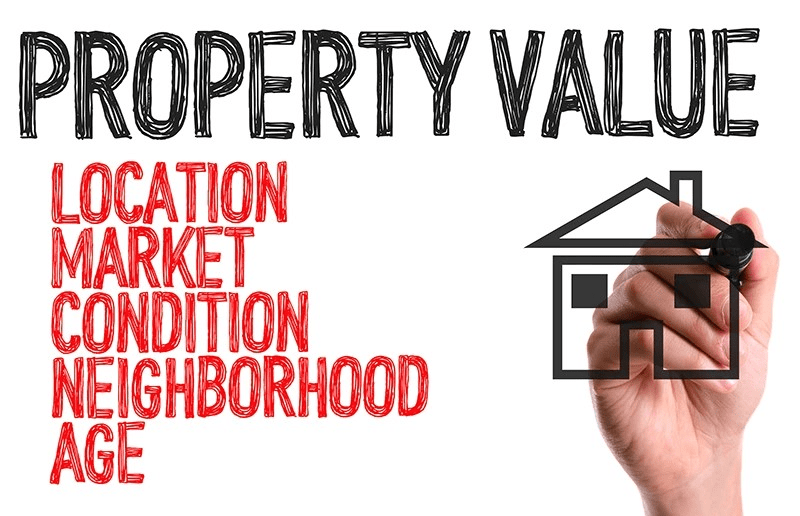Marketing Value of Your Property
The marketing value of a property, often referred to as its market value, is the estimated price at which a property should sell in a competitive and open market, assuming that both the buyer and seller are well-informed and not under any undue pressure to complete the transaction. This value can be influenced by various factors, and it's essential to understand how these factors can impact the marketing value of your property:

Location: The location of a property is one of the most critical factors affecting its market value. Properties in desirable neighborhoods, close to amenities, schools, parks, and public transportation tend to have higher values.
Size and Layout: The size of the property, including the number of bedrooms, bathrooms, and the overall layout, plays a significant role in determining its value. Larger properties or those with more functional layouts often command higher prices.
Condition: The overall condition of the property, including its age, maintenance, and any necessary repairs or renovations, can affect its market value. Well-maintained and updated properties typically have higher values.
Comparable Sales (Comps): Real estate professionals often use recent sales of similar properties in the same area (comps) to determine a property's market value. These sales provide a benchmark for pricing.
Economic Factors: Broader economic conditions, including interest rates, employment rates, and overall economic stability, can influence property values. A strong economy can drive up demand and, consequently, property values.
Market Trends: Real estate markets can be cyclical, and property values can fluctuate with market trends. Understanding the current market conditions, such as whether it's a buyer's or seller's market, is essential.
Supply and Demand: The basic principles of supply and demand apply to the real estate market. A shortage of properties in a high-demand area can drive up prices, while an oversupply can lead to price declines.
Property Features: Unique features or amenities, such as a swimming pool, a view, or a well-landscaped yard, can add value to a property.
Local Regulations: Zoning laws, property taxes, and other local regulations can impact a property's market value. These factors can affect how the property can be used and how much it costs to own.
Comparable Listings: The prices of similar properties currently listed for sale can also influence a property's market value. Buyers and sellers often compare listings to assess value.

To determine the marketing value of your property, it's advisable to work with a qualified real estate appraiser or a real estate agent who can provide a comparative market analysis (CMA) or a formal appraisal. They will take into account all these factors and assess recent market data to provide an estimate of your property's value. Keep in mind that the marketing value is not a fixed price but rather an estimate that can change over time based on market conditions and property improvements or depreciation.
